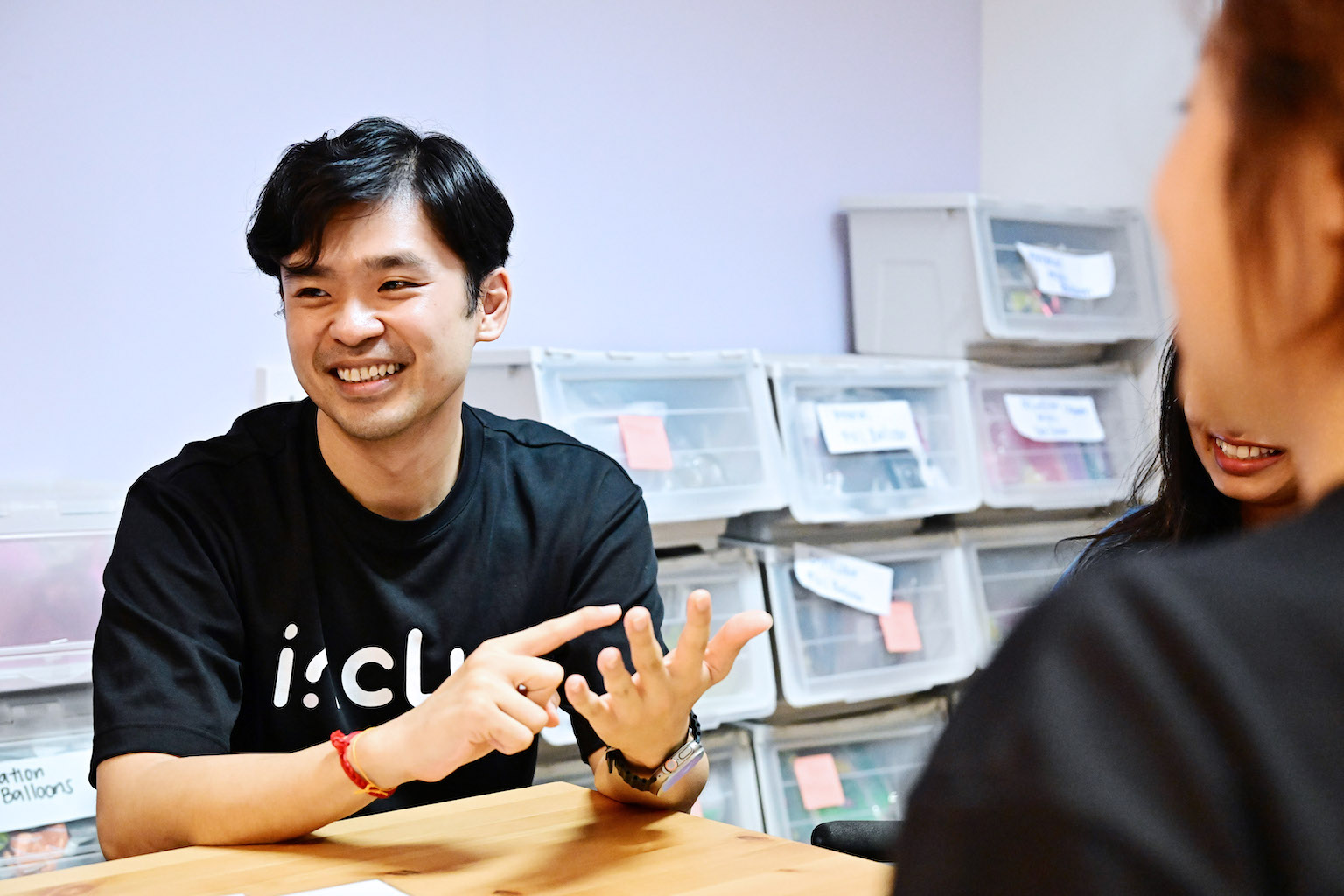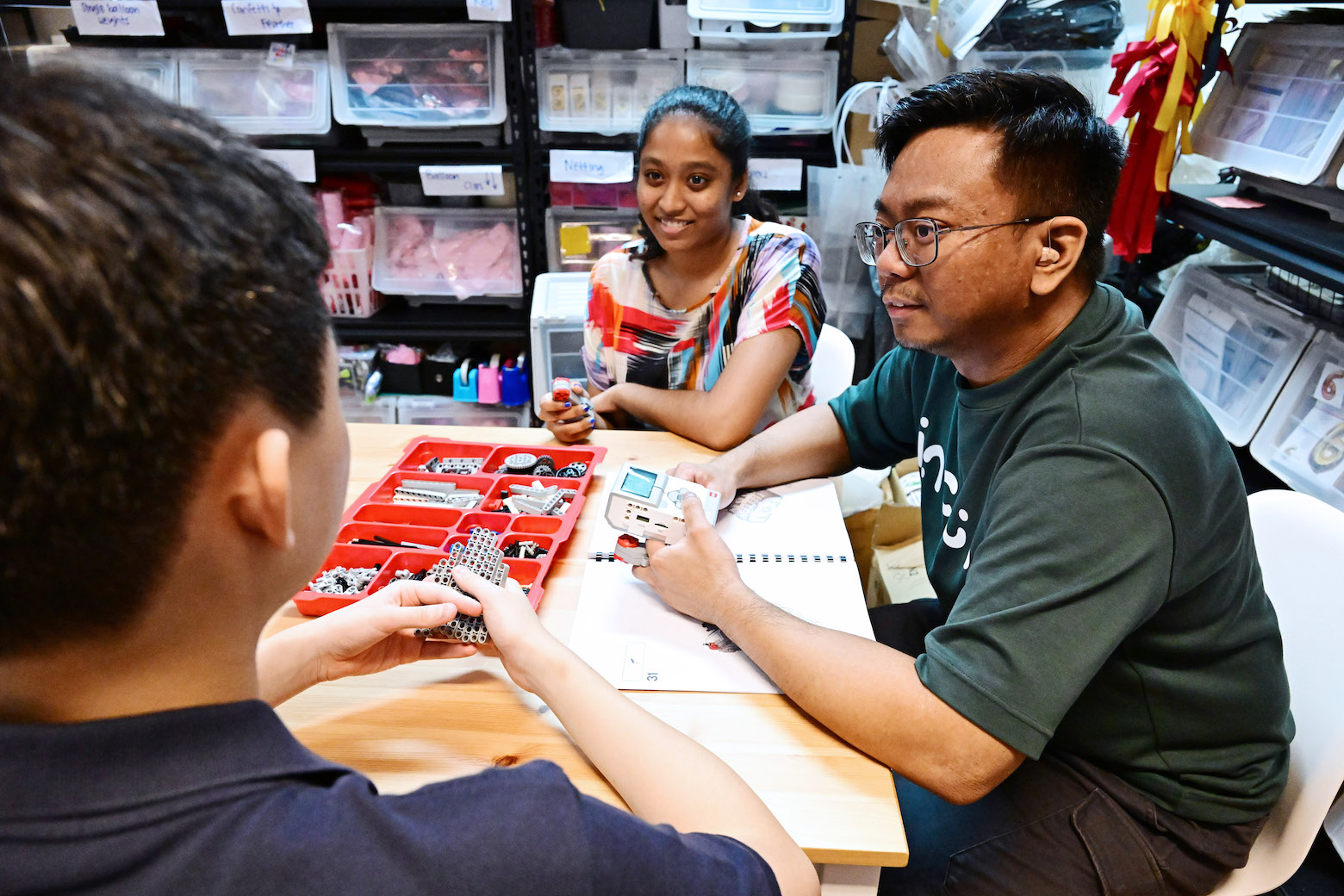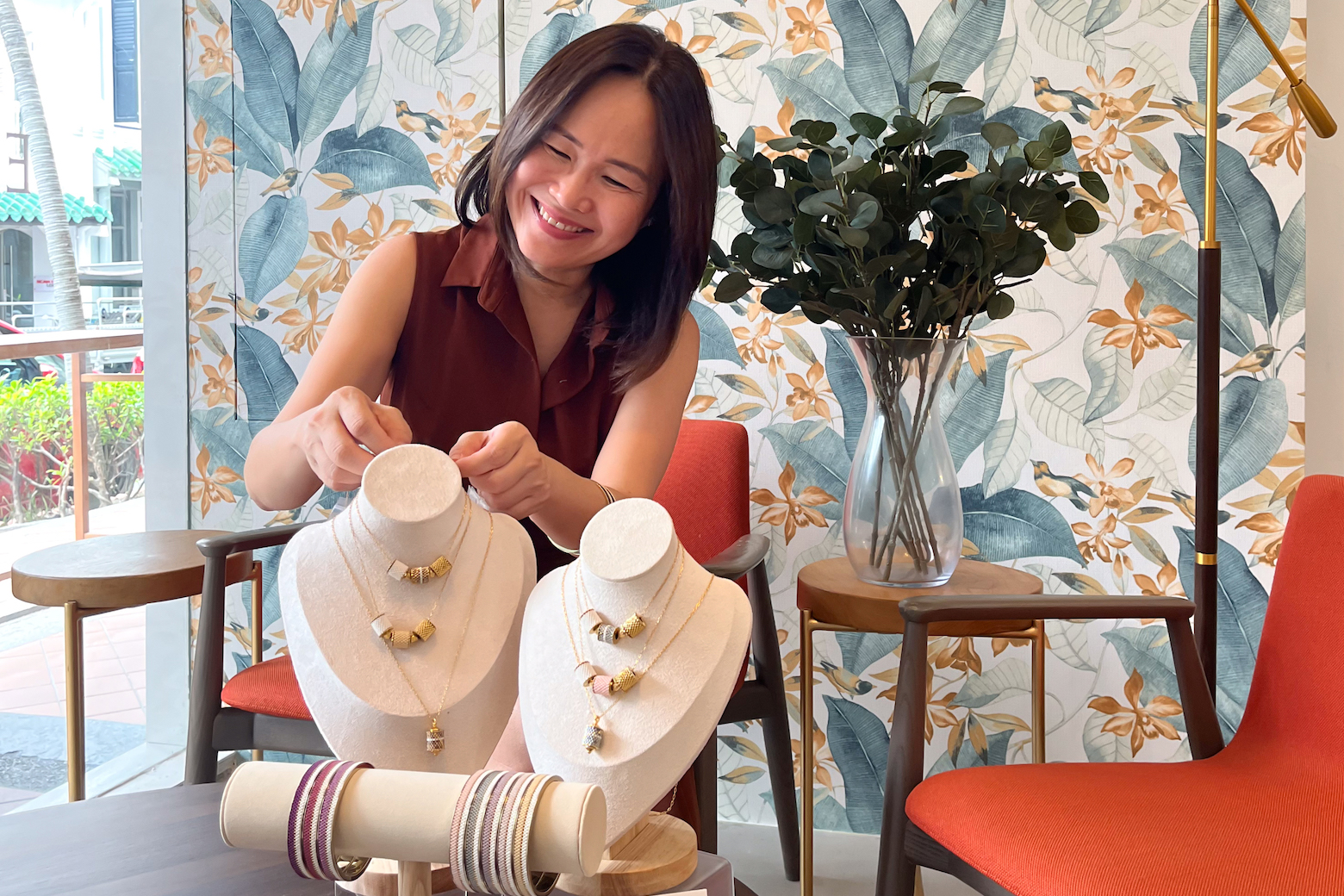BRANDED CONTENT
He gave up a thriving IT business to create a ‘talent agency’ for the less able
The social enterprise helps persons with disabilities find jobs, and provides workshops covering topics including digital and financial literacy

Mr Shaun Tan, co-founder of social enterprise Inclus, communicating through sign language. The social enterprise provides training for persons with disabilities and helps them find employment.
PHOTO: THARM SOOK WAI
Mr Shaun Tan had it made. His IT consulting and software engineering services firm, co-founded with business partner Anders Tan, 39, in 2015, was turning a profit in its first year.
But something was missing.
“It was good money for sure,” says Mr Shaun Tan, 36, “but (Anders and I) struggled to find meaning (in what we were doing).”
The duo met while studying information systems at the Singapore Management University. Despite their entrepreneurial success, they yearned for a deeper purpose.
They found that purpose in 2018. They made the bold decision to shut down the lucrative business to focus on Inclus, a social enterprise that aims to help people with disabilities secure jobs.
The catalyst: A plea for help from a mutual friend, Mr Arudra Vangal, who is autistic.
Mr Vangal had been trying – but failing – to find a job for over a year after graduating with a diploma in entertainment design and illustration. Despite having strong cognitive abilities, the 34-year-old has certain “emotional support needs that make it challenging for him to find and sustain jobs”, says Mr Shaun Tan.
For two months, the two Tans drove around Singapore, knocking on the doors of social services organisations.
“(We wondered), since we can’t help him find jobs on our own, are there any organisations that can help?” Mr Shaun Tan recalls. But it was harder than he thought.
“(We wondered), since we can’t help him find jobs on our own, are there any organisations that can help?” Mr Shaun Tan recalls. But it was harder than he thought.
The challenge: Mr Vangal did not attend government-funded special education schools in Singapore.
He studied at an international school in Singapore, and had to travel from time to time as his family moved frequently due to his father’s business.
Accessing employment support schemes at social service organisations would require onboarding Mr Vangal to the database, which could take months, says Mr Shaun Tan. “(The onboarding processes) were understandable, but as friends, we were impatient.”
The two Tans and Mr Vangal decided to take matters into their own hands. Six months later, Inclus was born. The social enterprise aims to help people with disabilities secure employment, functioning as a recruitment agency.
“Our recruiters would source jobs from employers, then try to match candidates (who are persons with disabilities) for the open roles,” says Mr Tan. Inclus currently runs an 18-strong team, including five recruiters and five life skill coaches.
Inclus also offers job support and workplace integration services for up to 12 months after placement. This helps employers understand their employees’ disabilities, and assists employees in learning and adapting to workplace norms.
Its service is free for persons with disabilities. Companies pay a fee of about 20 to 25 per cent of the worker’s annual salary, a rate that Mr Tan says is comparable with other recruitment agencies.
Typically, it takes two to four months for Inclus to help persons with disabilities find employment.
Plugging a gap
Now, Inclus is working closely with the same organisations that its co-founders approached previously, to help place and support persons with disabilities into employment.
Beyond recruitment, “we also provide training programmes to help persons with disabilities be work-ready”, says Mr Tan.
Twice a month, Inclus conducts “enrichment workshops”, each lasting one and a half hours, for persons with disabilities. These workshops cover a wide range of topics including financial and digital literacy, and social skills such as how to deal with bullying.

There are usually eight to 12 people in a workshop, says Mr Tan. “It also gives (the persons with disabilities) a chance to socialise.”
To date, Inclus has trained over 1,200 persons with disabilities and secured jobs for more than 150. It also helped place about 350 students in internships.
Scaling impact with tech
Helping persons with disabilities secure employment “is just a start”, says Mr Tan. The company wants to expand its services to “support persons with disabilities from cradle to grave”.
How? Through services such as after-school care for students with disabilities, which Inclus is now in the midst of rolling out.
But manpower remains a key constraint. “The services we provide are very labour-intensive,” says Mr Tan.
Impact beyond banking
- What if Mummy is no longer around?: How this bank is helping to allay a mother’s fears by equipping her special needs son with the skills to live independently.
- Starting them young: On weekends, these bank staff volunteer their skills and time – to teach young kids about money management in a fun and simple way.
- She grew up in a rental flat, now she's giving back: Find out how this DBS volunteer befriender provides support and guidance to help her assigned ComLink+ family improve their financial plight.
For example, post-job placement, Inclus’ life skill coaches follow up regularly with the persons with disabilities through check-ins ranging from daily to weekly. “It’s unsustainable to scale by simply hiring more people.”
The solution? A mobile application that helps lighten the workload of life skill coaches.
The app was developed with support from the DBS Foundation Grant. (see other story)
Leveraging artificial intelligence, the app acts as a “virtual companion” for persons with disabilities. “It will have a chatbot that can provide first-level intervention when needed, such as when they face difficulties at work,” says Mr Tan.
“There’ll also be a journaling feature. When they (log negative emotions on the app), the person relevant to supporting the individual will be alerted.”
This reduces the need for life skill coaches to check in with the persons with disabilities one by one, “so that we can scale effectively and support more people”, Mr Tan adds.
The company has plans to expand into neighbouring markets, specifically Thailand and Malaysia, within the next six months.
Inclus was born out of an immediate need, says Mr Tan. But in the long run, he looks forward to a day where its services are no longer needed. “That’s how I envision an inclusive society to look like.”
Grant brings hope for a better world
Social enterprise Inclus is one of the 24 companies awarded the DBS Foundation Grant in 2023.
The grant provides recipients from six markets with up to $250,000 each to scale up their business and drive positive social change.
The six markets are Singapore, India, Indonesia, China, Hong Kong and Taiwan.
Since 2014, DBS Foundation has provided over $17 million in grants to 140 social enterprises and small and medium-sized enterprises (SMEs), in addition to mentorship, capacity-building and other support measures.
One bead at a time
Among them is Eden + Elie, incorporated in 2016. The brand creates hand-woven beaded jewellery, crafted by local artisans who are autistic at its jewellery workshop at the Enabling Village in Lengkok Bahru.
To date, Eden + Elie has trained and hired 17 adults with autism.

Founder Stephanie Choo, who is in her 50s, says she was inspired by her travels, where she encountered communities creating great crafts but struggling to market them. This led her to launch Eden + Elie, combining design, business strategy, and social impact.
But working with autistic individuals wasn’t something that Ms Choo planned from the start.
When demand for her jewellery surged in 2017, she needed a sustainable way to scale up production while ensuring quality. “SG Enable introduced me to the Autism Resource Centre,” says Ms Choo.
That’s when she found the perfect fit: “The traits of autism, such as the preference for methodical processes and visually concrete information, matched Eden + Elie’s need for artisans who could create very fine and delicate products.”
The DBS Foundation Grant, awarded in 2021, proved crucial during the pandemic. It helped Eden + Elie pivot online, says Ms Choo, expanding their reach to international markets, including the US.
Eden + Elie opened its first standalone retail store earlier this month in Duxton Road. Products are also available on its website and through stockists including The Art Faculty at Enabling Village.
This was produced in partnership with DBS Foundation.


